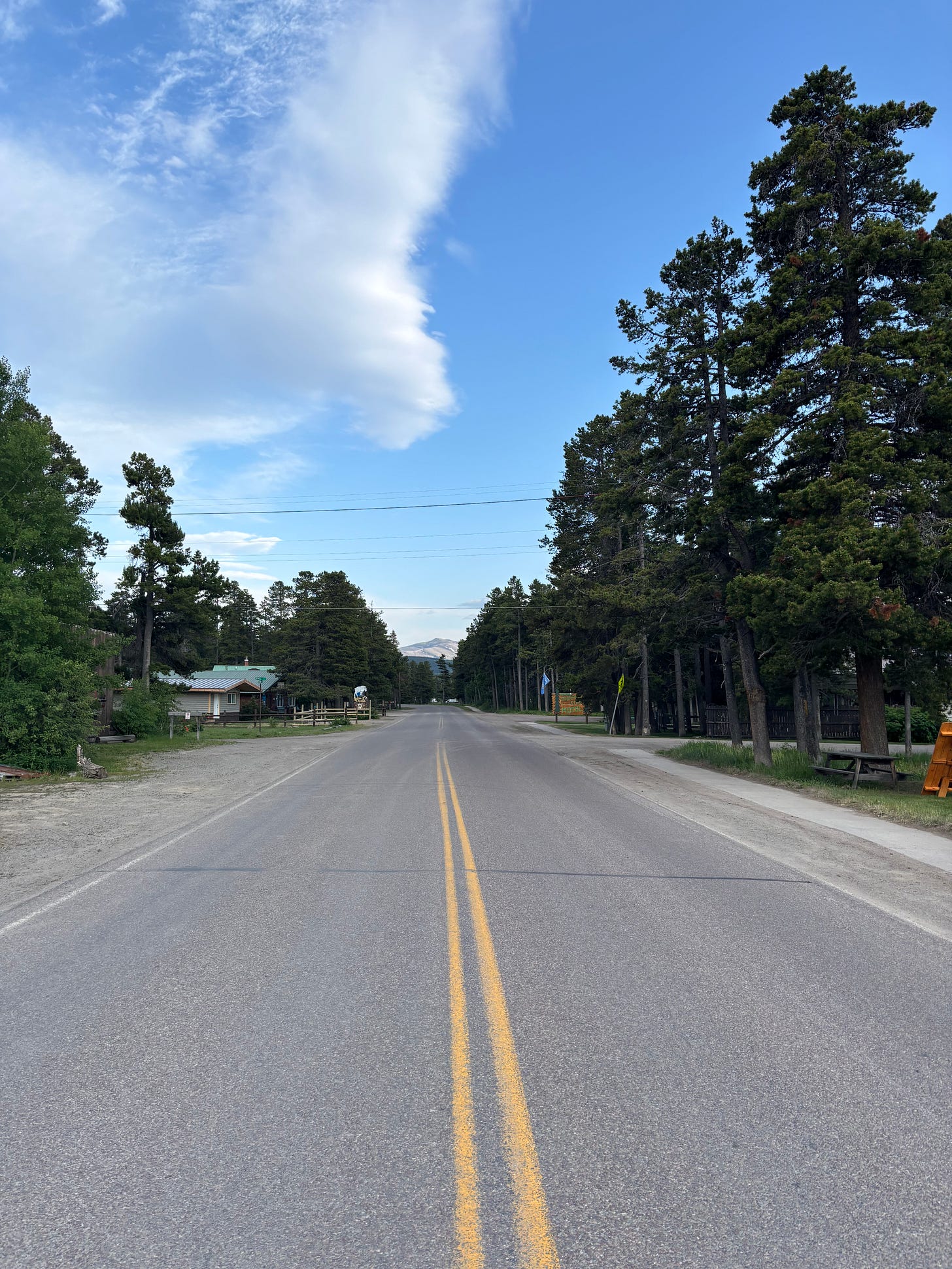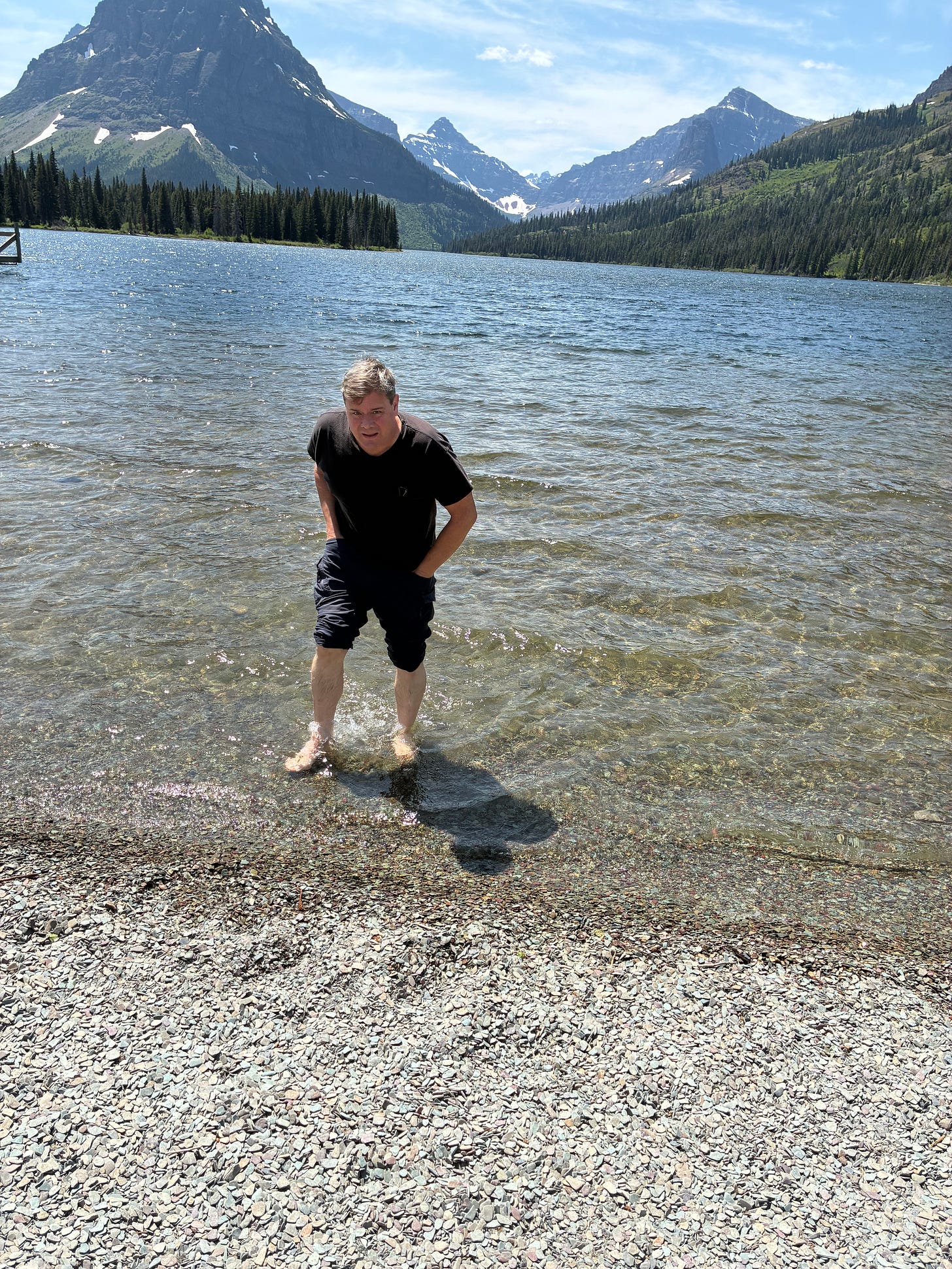The Obvious Goal
is high-trust society, which is already there if it isn't torn down
We’ve been camping our way east, hanging off the bottom of Canada, and seeing the social trust that travel implies. Sitting in a campground, looking at license plates: Texas, Nebraska, California, Idaho, Washington, Oregon, Wisconsin, Minnesota. People are from very different places, and everyone is just fine. Friendly people everywhere. Mostly, campgrounds get quieter around 10:00, and people leave on time so the next people coming in have the site. I asked a volunteer NPS campground host this morning how many people gave him trouble, and his answer was that 95% of people are great, three of four percent make small problems that are easily solved, and one percent are a giant pain in the ass and the rangers have to come deal with them. I’m pretty sure that Los Angeles, say for example, also has that one percent, but one percent of the ten million people in LA County can cause a lot of concentrated harm.
And so, in peaceful places with high-trust behaviors very much in evidence, I keep thinking about these images from the recent peaceful protests in Los Angeles:
It seems to me, rolling through peaceful places where people cooperate and help each other, that the foundational purpose of institutions, including government at every level, is to nurture and enable high-trust society, which can often be accomplished by the absence of intervention. Don’t monkeywrench communities, and they do just fine without you.
This is precisely the opposite of what our institutions have been doing, starting (in recent terms) with the horror show of pandemic policy. Throwing open the border for millions of illegal crossings in four years, or setting up a giant system to enable the arrival of those millions of people with free housing, food, medical care, and everything else, is above all an assault on that kind of society, and creates a need for more authority to manage the decline of trust and comity. It’s a failure of authority that creates a demand for more authority, and it’s the deeply dishonest project of people who warn that Donald Trump is an aspiring authoritarian.
Fascinating to drive around high-trust places and feel the difference.
Also, glacial lakes are slightly cold.
Turning south and headed toward home in the morning, but slowly. Slowly. And we’re a long way out. Will get back to writing regular content when I get home, but I’ll be obsessed for a while with this question about institutions and the problem of social trust. There’s an enormous natural well of it, which always shows up on the road, but it’s not translating to national political culture, in good part because of media and political manipulation. Trying to see the ways that a high-trust culture at ground level turns into a low-trust society in function and feeling. Good communities, good people, sick country. I welcome your thoughts.




Low-trust society, illustrated:
https://x.com/EYakoby/status/1935169359447736727
This is a quarter of an inch from "fuck you, peasants."
Interesting. That you wrote that today, as I wrote and shared the following comment on another platform today. Seemingly contradictory. But not. It is precisely the high trust societies that are most vulnerable to becoming authoritarian dystopias. Because the authoritarian predator class knows how to exploit high trust societies. And turn them to shit. Your piece today combined with my earlier comment can work together. And direct some thought into how to help prevent high trust societies from being exploited and turned into authoritarian dystopias.
"Minnesota is the textbook example of who, where, why free people become subjects under authoritarian rule.
They, by nature, are very nice, pleasant people. And very trusting. Especially of authority. So trusting that they are preternaturally obedient.
This is a feature of Nordic people. Who settled into that part of the US more than any other region. "Minnesota nice." "Wisconsin nice." A very Nordic trait.
What does "nice" have to do with becoming subjects under authoritarian rule? Think back to how masking first came about in 2020. To be nice. "To show you cared. To protect Grandma, even though you knew you were safe. The nice thing to do. And authorities said so. Those in power wouldn't dare abuse the trust of the population in a crisis. That would be bad and wrong. And most people aren't bad people doing wrong things. Those who we see in power appear to be nice, just like us. Even if they're wrong they must have a reason to say and do what they say and do. And to make demands of us. Can't have leaders in power we can't trust, they know that, they'd never blow the trust of the people. Only bad people do that, not our leaders. And since we're a nation of law and order we must obey laws and orders, that's how things work. Disobeying laws and orders is what criminals do. And we're not criminals. We're nice, law-abiding people."
And THAT'S who, where and why Minnesota has the politics it has, suffers under authoritarian rule. Because they are so very nice, trusting and obedient. Predators and authoritarians (but I repeat myself) know this, love them some very nice, trusting and obedient populations to rule. Easiest prey to turn into subjects.
Which is why the saying, "Be ungovernable" exists. American DNA is to be rebellious, sometimes rude and offensive, having the freedom to offend is paramount for free societies. Which is why there's been a long drumbeat to criminalize "offensive" speech and behaviors. Not anything that actually results in harm, just hurt feelings criminalized. Making it the law to be "nice" people who don't offend anyone's feelings. How subjects are created. And become a self-enforcing population. Of "nice" people."